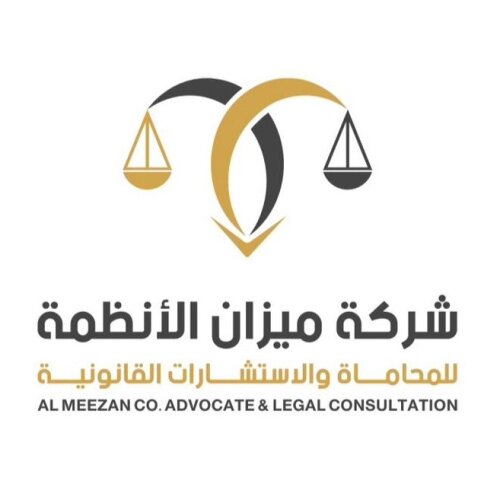Best Constitutional Law Lawyers in Makkah
Share your needs with us, get contacted by law firms.
Free. Takes 2 min.
List of the best lawyers in Makkah, Saudi Arabia
About Constitutional Law in Makkah, Saudi Arabia:
Constitutional Law in Makkah, Saudi Arabia, refers to the set of laws and principles outlined in the country's constitution that govern the relationship between the government and its citizens. It deals with fundamental rights, freedoms, and the structure of government institutions.
Why You May Need a Lawyer:
You may need a lawyer specializing in Constitutional Law in Makkah, Saudi Arabia, if you believe your constitutional rights have been violated, if you are involved in a case concerning the interpretation of the constitution, if you are facing legal challenges related to government policies or decisions, or if you need guidance on how to exercise your rights as a citizen.
Local Laws Overview:
Key aspects of local laws that are relevant to Constitutional Law in Makkah, Saudi Arabia, include the Basic Law of Governance, which serves as the country's constitution, the system of Shari'a law that influences legislation, and the structure of government institutions such as the Shura Council and the Council of Ministers.
Frequently Asked Questions:
1. What is the Basic Law of Governance?
The Basic Law of Governance is the constitution of Saudi Arabia, outlining the system of government, the rights of citizens, and the responsibilities of the state.
2. How does Shari'a law impact Constitutional Law in Saudi Arabia?
Shari'a law influences legislation and legal processes in Saudi Arabia, including matters related to personal status, family law, and criminal law.
3. What rights are guaranteed to Saudi citizens under the constitution?
Saudi citizens are guaranteed rights such as the right to equality, freedom of expression, religion, and assembly, as well as the right to a fair trial.
4. Can a citizen challenge a government decision based on the constitution?
Yes, citizens can challenge government decisions that they believe violate the constitution by seeking legal recourse through the courts.
5. What is the role of the Shura Council in Constitutional Law?
The Shura Council plays a consultative role in the legislative process and provides recommendations on legislation to the King.
6. How can I file a constitutional complaint in Makkah, Saudi Arabia?
You can file a constitutional complaint through the Grievances Board, which reviews complaints related to governmental actions that may violate the constitution.
7. Are women's rights protected under the constitution in Saudi Arabia?
Yes, women's rights are protected under the constitution, guaranteeing them equal rights in areas such as education, employment, and healthcare.
8. What penalties exist for violating the constitution in Saudi Arabia?
Penalties for violating the constitution in Saudi Arabia can include fines, imprisonment, or other legal consequences depending on the severity of the violation.
9. Can non-citizens appeal to the constitution in Saudi Arabia?
Non-citizens in Saudi Arabia may have limited rights under the constitution, but they are entitled to certain fundamental rights and protections as outlined in the law.
10. How can I stay informed about changes in Constitutional Law in Saudi Arabia?
You can stay informed about changes in Constitutional Law in Saudi Arabia by following updates from government sources, legal organizations, and news outlets that cover legal developments in the country.
Additional Resources:
For legal advice and assistance in Constitutional Law matters in Makkah, Saudi Arabia, you can reach out to the Grievances Board, the Saudi Bar Association, or consult with a reputable law firm specializing in constitutional law.
Next Steps:
If you require legal assistance in Constitutional Law in Makkah, Saudi Arabia, it is advised to consult with a qualified lawyer who has experience in this field. They can provide you with guidance on your rights, legal options, and how to navigate the legal system effectively.
Lawzana helps you find the best lawyers and law firms in Makkah through a curated and pre-screened list of qualified legal professionals. Our platform offers rankings and detailed profiles of attorneys and law firms, allowing you to compare based on practice areas, including Constitutional Law, experience, and client feedback.
Each profile includes a description of the firm's areas of practice, client reviews, team members and partners, year of establishment, spoken languages, office locations, contact information, social media presence, and any published articles or resources. Most firms on our platform speak English and are experienced in both local and international legal matters.
Get a quote from top-rated law firms in Makkah, Saudi Arabia — quickly, securely, and without unnecessary hassle.
Disclaimer:
The information provided on this page is for general informational purposes only and does not constitute legal advice. While we strive to ensure the accuracy and relevance of the content, legal information may change over time, and interpretations of the law can vary. You should always consult with a qualified legal professional for advice specific to your situation.
We disclaim all liability for actions taken or not taken based on the content of this page. If you believe any information is incorrect or outdated, please contact us, and we will review and update it where appropriate.








